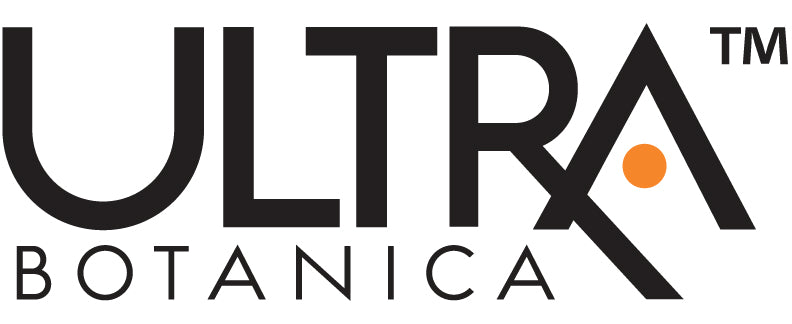Do you forget where you left your keys, wallet, or phone too often?
Brain fog is more than a casual nuisance—it can severely zap your quality of life, productivity, and overall sense of well-being. It is characterized by forgetfulness, difficulty concentrating, mental fatigue, and a general sense of cognitive dullness or brain fogginess.
While not a medical diagnosis per se, it often accompanies a range of health conditions from chronic fatigue syndrome to long COVID-19.
But it can also have no real apparent cause... although after reading this post you’ll hopefully gain some insights into brain fog causes and how to resolve it for yourself.
The good news? In many cases, you can reduce brain fog naturally through lifestyle interventions and targeted nutritional support.
This article explores the primary brain fog causes and outlines evidence-based strategies to reclaim your mental sharpness, supported by peer-reviewed research and clinical findings. And all just in time for Alzheimer’s and Brain Awareness Month (every June).
What Causes Brain Fog?
Brain fog is a symptom, not a condition itself. Understanding its root causes is the first step toward relief. Here are some of the most common contributors:
1. Poor Sleep Quality
Sleep is imperative to improve cognitive function and memory consolidation. During deep sleep, the brain undergoes a unique brain detox process via the glymphatic system, clearing out neurotoxins like beta-amyloid.
Poor sleep and sleep deprivation impair this function, leading to mental fatigue and memory lapses. Inadequate sleep can reduce alertness, slow reaction times, impair judgment, and make complex thinking more difficult.
Sleep is closely linked to many conditions, including brain fog, dementia, and also non-brain-related conditions including heart disease and cancer.
Studies show that the glymphatic system is most active during sleep, supporting the brain's ability to clear brain waste effectively (Xie et al., Science, 2013).

2. Chronic Stress and Elevated Cortisol
Persistent stress leads to elevated levels of cortisol, a hormone that, at high levels, can impair the hippocampus—a brain region essential for learning and memory.
Chronically high cortisol can suppress neurogenesis (the creation of new neurons), disrupt neurotransmitter balance, and contribute to mood disorders, all of which exacerbate brain fog. Reducing stress is one of the top natural brain fog remedies.
Neurogenesis is the process by which new neurons (nerve cells) are formed in the brain.
Research shows that neurogenesis continues far into adulthood—especially in the hippocampus – despite the previously believed idea that neurogenesis ended with childhood.
Adult neurogenesis plays a key role in:
- Memory formation and retention
- Emotional regulation
- Cognitive flexibility
- Recovery from brain injury
Neurotransmitter balance is critically important because neurotransmitters are the brain’s chemical messengers. They carry signals between neurons and help regulate nearly every function in the brain and body – including mood, memory, attention, and energy levels.
Neurotransmitter communication takes place at the synapses, the tiny junctions between two nerve cells (neurons).
When one neuron wants to send a message to another, it releases a chemical neurotransmitter into the synapse, which then binds to receptors on the next neuron, allowing the signal to continue all along the pathway.
Stress can cause neurogenesis and synapses to malfunction, causing brain fog, alongside other symptoms like anxiety, depression, fatigue, and cognitive decline.
Prolonged stress has been shown in studies to reduce synaptic density and hippocampal volume (Lupien et al., Nature Reviews Neuroscience, 2009).
3. Nutritional Deficiencies
Deficiencies in essential vitamins and minerals can impair cognitive processes. Key nutrient players include:
- Vitamin B12: Crucial for myelin formation and neurotransmitter synthesis. Low levels are linked to confusion, memory loss, and fatigue. B12 is found in red meats, and is generally poorly absorbed.
- Folate: Important for methylation and detoxification pathways. Deficiency can contribute to mental sluggishness and mood disturbances.
- Omega-3 fatty acids: Essential for neuron membrane integrity. Insufficient levels can reduce communication between brain cells and promote inflammation.
According to studies, the B complex vitamins are considered among the best vitamins for brain fog. Supplementation slowed cognitive decline in individuals with mild cognitive impairment. (Smith et al., PLoS One, 2010).

4. Diet and Blood Sugar Spikes
A high-glycemic diet (read: high sugar/high starch diet) can lead to blood sugar crashes, resulting in fatigue and poor concentration.
Glucose instability also fuels systemic inflammation, which triggers neuroinflammation – one of the leading physiological brain fog causes. Long-term insulin resistance has also been tied to increased Alzheimer’s risk.
A 2012 study in Neurology found a strong correlation between high glycemic load diets and an increased risk of cognitive impairment.
The good news? Nutrition changes are among the most effective answers to how to get rid of brain fog without medication.
5. Medical Conditions and Infections
Conditions like hypothyroidism, Lyme disease, fibromyalgia, and long COVID are frequently linked with brain fog.
These illnesses often involve inflammatory processes, mitochondrial dysfunction, and immune dysregulation—all of which negatively impact cognitive function.
For example, in a systematic review, brain fog was one of the most common cognitive symptoms in long COVID patients (Nalbandian et al., Nature Medicine, 2021).
Natural Strategies to Eliminate Brain Fog
1. Optimize Sleep Hygiene
Good sleep is foundational if you're trying to reduce brain fog naturally. Here’s how to promote better sleep:
- Maintain a consistent sleep-wake schedule every day—even on weekends.
- Create a calming pre-sleep routine: herbal tea, stretching, reading (but not on a screen).
- Block out outdoor light and sounds with blackout curtains. Run a quiet white noise machine if that helps.
- Avoid caffeine, alcohol, heavy meals, and screens close to bedtime.
Melatonin helps regulate circadian rhythm and may improve sleep onset and quality, indirectly aiding with brain detox processes. Magnesium glycinate can promote muscle relaxation and deepen sleep quality.
2. Practice Mindfulness and Stress Reduction
Mindfulness reduces anxiety and helps improve cognitive function.
Meditation, yoga, and deep breathing exercises have been shown to help rebalance the autonomic nervous system, reduce cortisol, and activate the prefrontal cortex – the area responsible for decision-making and attention.
Regular mindfulness meditation increased gray matter in the hippocampus and other brain areas, according to a 2011 study (Holzel et al., Psychiatry Research: Neuroimaging, 2011).

3. Adopt a Brain-Healthy Diet
A nutrient-dense diet supports neurotransmitter synthesis, reduces inflammation, and protects against oxidative stress. Dietary changes are among the best natural brain fog remedies supported by research. Some practical steps:
- Eat fatty fish twice a week (rich in EPA and DHA).
- Snack on brain-boosting nuts like walnuts and almonds.
- Use olive oil. Get rid of all your seed oils. (Bad for your brain and your heart.)
- Add herbs like turmeric, rosemary, and sage for extra antioxidant power.
The MIND diet, which combines the Mediterranean and DASH diets, significantly reduced Alzheimer’s risk, according to a 2015 study (Morris et al., Alzheimer's & Dementia, 2015).
4. Stay Physically Active
Exercise improves cognitive function through increased blood flow to the brain and the stimulation of BDNF (brain-derived neurotrophic factor), which supports the survival of neurons.
It also helps reduce insulin resistance, improve sleep, and alleviate symptoms of anxiety and depression—all of which are linked to brain fog.
Aerobic exercise was shown in a study to increase hippocampal volume in older adults (Erickson et al., PNAS, 2011).
5. Stay Hydrated
Hydration is critical for energy, alertness, and detox—an essential part of any effective brain detox routine. Even mild dehydration can impair alertness and reduce mental performance.
Electrolytes may also play a role in hydration status, especially for those engaging in physical activity or living in warm climates.
Aim for at least 8 cups of water daily, more if you're active and/or live in a hot climate. Consider adding a pinch of sea salt and a splash of lemon for natural electrolytes.
Top Evidence-Based Supplements for Brain Fog
These supplements for mental clarity have demonstrated benefits in clinical research:
Citicoline (CDP-Choline)
Citicoline (also known as CDP-choline) is a naturally occurring compound that helps the brain produce acetylcholine, a key neurotransmitter involved in memory and learning.
It also supports phospholipid synthesis that maintains healthy brain cell membranes and communication.
- Supports the synthesis of phosphatidylcholine and acetylcholine.
- Enhances focus, mental clarity, and memory.
In a study, citicoline improved attention and cognitive performance in middle-aged adults (McGlade et al., Food and Nutrition Sciences, 2012).

Curcumin
Curcumin helps build brain health by reducing neuroinflammation and oxidative stress, both key contributors to cognitive decline and brain fog.
It also boosts levels of brain-derived neurotrophic factor (BDNF), a protein that supports the growth of new neurons and enhances memory and focus.
- Reduces neuroinflammation.
- Boosts BDNF levels.
- Enhances mood and working memory.
Bioavailable curcumin improved memory and attention in healthy older adults, as noted in a 2018 study (Small et al., American Journal of Geriatric Psychiatry, 2018).
The curcumin we recommend uses Protisorb™ maximum absorption technology to get it into the cells where most needed, and quickly.
Lion's Mane Mushroom
Lion’s Mane Mushroom promotes nerve growth factor (NGF), which is needed for the regeneration of neurons. It also supports neuroplasticity and the formation of new neural connections, which is key for maintaining sharp mental function.
-
May reduce inflammation and oxidative stress in the brain, both of which are known contributors to brain fog.
-
Promotes nerve growth factor (NGF) which is needed for neurons.
-
May support mood and reduce anxiety.
A 2009 Japanese study found improved cognitive function in adults who supplemented with lion’s mane (Mori et al., Phytotherapy Research, 2009).
B Vitamins
B complex vitamins are among the best vitamins for brain fog. They directly provide energy to brain cells, develop key neurotransmitters, and maintain myelin sheaths that protect nerve fibers.
Deficiencies in B6, B9 (folate), or B12 can disrupt these processes, leading to mental fatigue, memory issues, poor concentration, and mood imbalances—all hallmark symptoms of brain fog.
- B6, B9 (folate), and B12 are critical for methylation and neurotransmitter synthesis.
- B12 deficiency is especially common in vegans, vegetarians, and older adults, as it is primarily found in red meats.
A randomized trial showed reduced brain atrophy in people with mild cognitive impairment when they used B vitamin supplements (Smith et al., PLoS One, 2010).
Magnesium L-Threonate
Magnesium L-Threonate is a unique form of magnesium shown to cross the blood-brain barrier, making it highly effective for targeting the brain.
-
Supports synaptic density and communication between brain cells. May improve long term memory.
-
Helps restore magnesium levels in the brain, which can decline with age and chronic stress (both are linked to brain fog).
-
May reduce anxiety and improve sleep quality—two common contributors to cognitive fatigue.
A study found that Magnesium Threonate improved working memory and learning in aged rats, with implications for human use (Slutsky et al., Neuron, 2010).

Lifestyle Hacks to Maintain Mental Clarity
- Use a planner or digital task app to reduce mental clutter and stay organized —key tactics for anyone wondering how to get rid of brain fog on busy days.
- Try the Pomodoro technique—25-minute focused work sessions followed by 5-minute breaks—to maintain productivity.
- Spend at least 20 minutes a day outdoors to boost vitamin D, reduce cortisol, and restore mental energy.
- Practice gratitude journaling in the morning or evening to shift focus toward the positive and reduce brain fog naturally.
- Reduce environmental toxins: Avoid synthetic fragrances, limit plastics, and filter your water to minimize neurotoxic exposures.
When to Seek Medical Attention
Persistent brain fog that doesn't respond to natural strategies may require lab testing, especially to investigate underlying brain fog causes such as:
- Neurodegenerative diseases (e.g., Alzheimer’s, Parkinson’s)
- Autoimmune disorders (e.g., lupus, multiple sclerosis)
- Hormonal imbalances (e.g., thyroid dysfunction, adrenal fatigue)
- Heavy metal toxicity (e.g., mercury, lead)
We recommend you consult with a healthcare professional for comprehensive lab testing and cognitive evaluation if symptoms persist. Functional medicine practitioners may also assess mitochondrial function, gut health, and toxin burden as contributors.
Conclusion
Brain fog is a multi-faceted group of symptoms that can stem from various lifestyle factors, nutrient deficiencies, chronic stress, or underlying medical conditions.
The good news is that natural brain fog remedies rooted in diet, sleep, exercise, supplementation, and stress management—are often highly effective in restoring mental clarity and cognitive performance.
With consistent application of these strategies, many people report significant improvements in mental sharpness, energy, and overall quality of life.
By addressing root causes and integrating supportive practices, you can transform brain fog from a daily struggle into a thing of the past.

Frequently Asked Questions
1. What is brain fog?
Brain fog is a non-medical term describing a feeling of mental cloudiness, confusion, forgetfulness, and lack of focus or mental clarity.
2. What are some common causes of brain fog?
Common causes of brain fog include chronic stress, lack of sleep, poor nutrition, dehydration, inflammation, hormonal imbalances, and exposure to toxins.
3. What are 5 of the most important supplements needed for brain clarity?
To improve cognitive function and boost mental clarity, key supplements include omega-3s for brain health, B vitamins for energy and focus, vitamin D for mood support, magnesium for relaxation, and L-theanine for calm alertness.
4. What natural lifestyle hacks work for banishing brain fog and producing mental clarity?
Wondering how to get rid of brain fog? Focus on quality sleep, manage stress, eat nutrient-dense foods, stay hydrated, and exercise regularly to enhance clarity and focus.





Share:
Protect Your Liver: Essential Strategies for Optimal Health
Hospital Stays and the July Effect